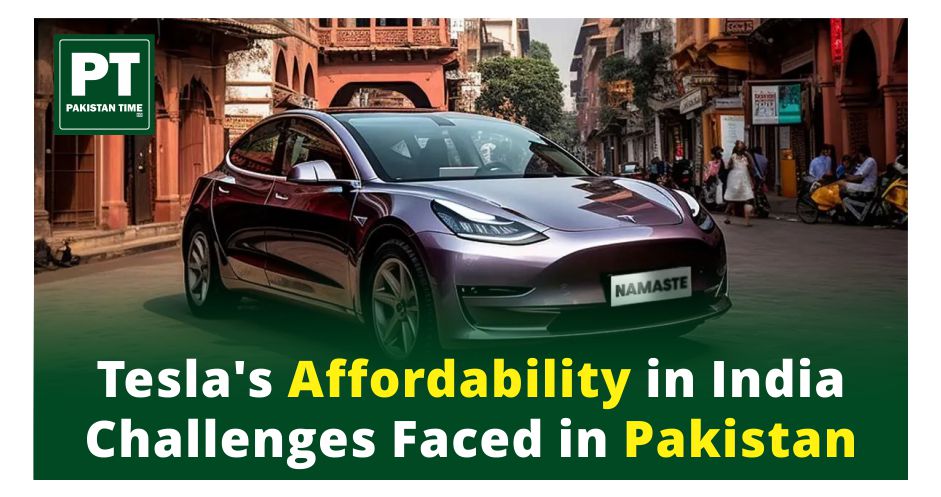Decoding Electric Car Pricing: A Comparative Analysis of Tesla’s Affordability in India and the Challenges Faced in Pakistan
The recent announcement of Tesla launching its first Made-in-India electric car priced at less than INR 17 lakh has sparked interest not only in the Indian automotive market but also raised questions about the pricing disparities of electric cars, especially Tesla models, in neighboring countries like Pakistan. In this blog, we delve into the factors contributing to the differences in pricing between the two nations.
Tesla’s Entry into the Indian Market
Tesla’s decision to manufacture electric cars in India aligns with its global strategy of expanding into emerging markets. The introduction of an affordable electric vehicle (EV) model is a strategic move aimed at making electric transportation accessible to a wider segment of the Indian population. This move is expected to accelerate the adoption of EVs and contribute to the Indian government’s push towards sustainable mobility.
Factors Influencing Affordable Pricing in India:
- Local Manufacturing: Tesla’s commitment to local production in India plays a pivotal role in cost reduction. By manufacturing cars within the country, Tesla can take advantage of lower production costs, reduced import duties, and benefit from government incentives promoting domestic manufacturing.
- Government Incentives: The Indian government has been actively promoting electric mobility through various incentives and subsidies. These measures include tax benefits, reduced GST rates, and financial incentives for both manufacturers and consumers, contributing to the affordability of electric cars.
- Market Dynamics: The Indian automotive market is highly competitive, with a growing demand for electric vehicles. Tesla’s decision to offer a competitively priced model reflects its understanding of the market dynamics and the need to establish a strong foothold in the Indian EV segment.
Pricing Disparities in Pakistan
While India embraces the shift towards electric mobility with supportive policies, Pakistan faces challenges that contribute to the comparatively high prices of Tesla and other electric cars:
- Import Duties: Pakistan imposes high import duties on luxury and foreign-made vehicles, contributing significantly to the elevated prices of imported electric cars, including Tesla models.
- Infrastructure Challenges: Limited charging infrastructure and the lack of a well-established electric vehicle ecosystem in Pakistan can deter potential buyers. The higher prices of electric cars may also be attributed to manufacturers factoring in the costs of establishing charging infrastructure in the region.
- Government Policies: Unlike India, Pakistan may not have implemented as many incentives and policies to encourage the adoption of electric vehicles. The absence of comprehensive government support can lead to higher costs for both manufacturers and consumers.
Conclusion: The pricing disparities between Tesla electric cars in India and Pakistan can be attributed to a combination of factors, including local manufacturing, government incentives, market dynamics, import duties, infrastructure challenges, and differing government policies. As both countries navigate their respective paths towards sustainable transportation, understanding these factors is crucial in comprehending the variations in electric car pricing across borders. The evolving landscape of electric mobility in South Asia presents opportunities for policy adjustments and industry collaboration to promote affordable and widespread adoption of electric vehicles.








